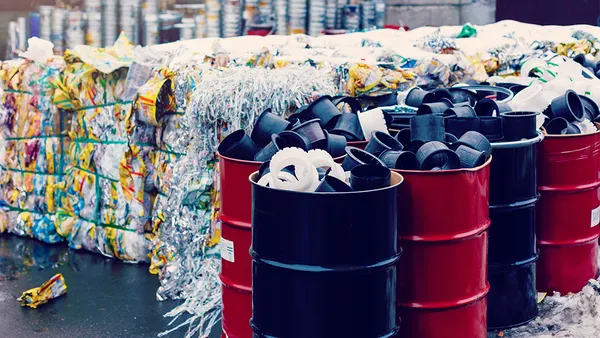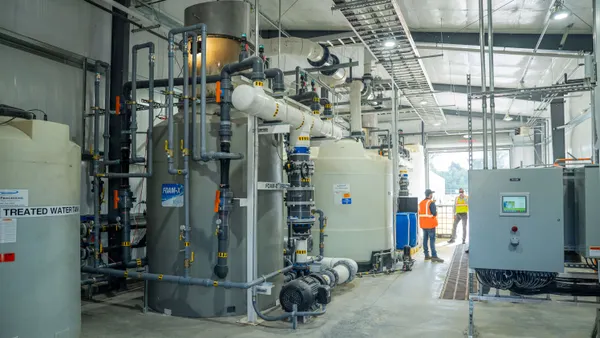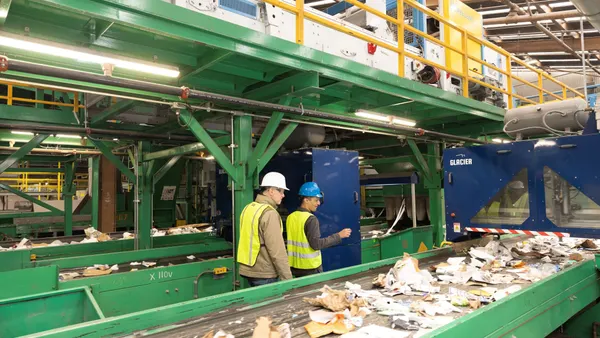Dive Brief:
- Dane County, WI officials plan to spend $23.5 million on new infrastructure to inject landfill gas into an interstate pipeline for sale, rather than use the gas to generate electricity, as reported by the Wisconsin State Journal. The county has budgeted $18 million for equipment to refine and inject landfill gas into the TransCanada pipeline and an additional $5.5 million for equipment to inject biogas that is brought to the landfill by biodigesters.
- Officials project the new equipment will be operational by early 2019. County Executive Joe Parisi told the Journal that the county thinks the new infrastructure will attract more private investment in biodigesters in the region. County officials project "millions" in annual income from selling landfill gas and expect biodigesters trucking gas to the new injection point to create even more revenue.
- The Dane County project is the first of its kind in Wisconsin. The county will sell only to compressed natural gas (CNG) markets and anticipates that three years of sales will recoup the $18 million cost of the equipment needed to refine the landfill gas into CNG.
Dive Insight:
Dane County is in a favorable position to make this development, largely because it has reliable feedstocks for biogas to be converted to CNG. Wisconsin has dozens of biodigesters because of the state's dairy industry, with several concentrated around Madison in the center of Dane County. The biodigesters are all potential sources of income, if the operators choose to inject their gas into the pipeline.
The move is well-timed: The county's contract with Madison Gas & Electric comes to term in 2019, and when it does, the county would see a drop in yearly revenue ($2.7 million to around $500,000) from selling electricity generated from landfill gas back to the utility.
The switch to creating and selling CNG may be well-timed on a federal level, too. President Donald Trump and EPA Administrator Scott Pruitt have made commitments to maintaining the Renewable Fuel Standard, a program that Dane County will be able to earn money from in the production of CNG. Additionally, there has been some movement in Congress to extend more tax credits to waste-based energy infrastructure, including biodigester projects.
The EPA and biogas producers aren't in agreement about required volumes for biogas under the RFS. However, after facing political pressure from Midwestern lawmakers, Pruitt said the agency would take a further look at the proposed volumes and finalize the numbers by the end of November — pledging to not lower them any further. Higher required biogas volumes could encourage more companies to pursue producing and selling biogas in the United States.









